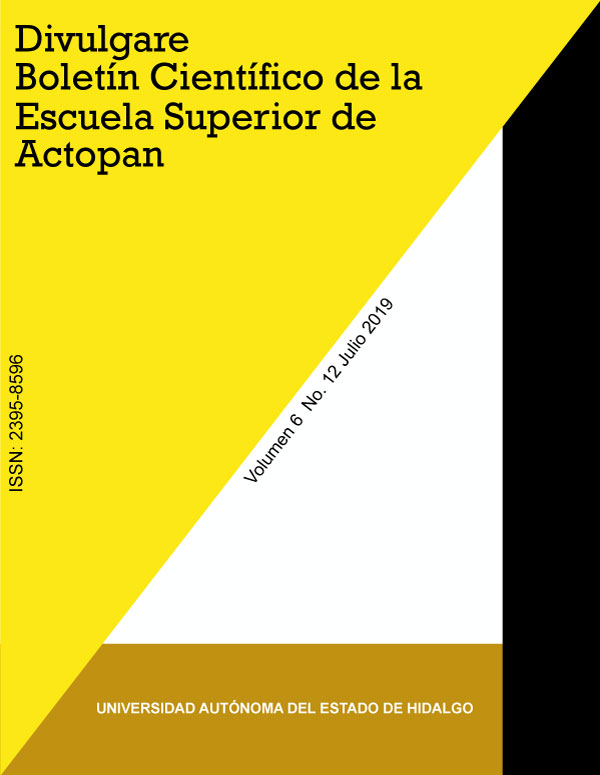Neuropsychological rehabilitation in patients with motor transcortical aphasia: case study.
DOI:
https://doi.org/10.29057/esa.v6i12.4015Keywords:
Stroke, Transcortical aphasia, Rehabilitation, Neuropsychology, CognitionAbstract
Aphasia is a disorder that is characterized by loss or deterioration of the complex processes necessary for the understanding and expression of language. The main cause of these disorders are cerebral vascular events. Rehabilitation treatments in these patients are focused on expression in processes such as verbal fluency and nomination, as well as verbal comprehension. The aim of this work was to perform a neuropsychological intervention in a patient with transcortical motor aphasia. An intervention plan of 19 sessions was carried out to improve the performance in the nomination through semantic and phonological cues, as well as sessions focused on the understanding of oral commands. The results showed improvements in the number of words nominated and a slight improvement in comprehension. It was concluded that the implemented tasks generated improvement in these processes, being the phonological aids with better effect on the semantics, as well as improvements in their activities of the patient's daily life.
Downloads
Publication Facts
Reviewer profiles N/A
Author statements
Indexed in
- Academic society
- N/A
References
Adelt, A., Hanne, S. & Stadie, N., (2016). Treatment Of sentences comprehension and production in aphasia: is there cross-modal generasation?. Neuropsychological Rehabilitation. Acepted: 6 july 2016.
Basso, A., Forbes, M., & Boller, F. (2013). Rehabilitation of aphasia. ELSEVIER,325- 334.
Best, W., Greenwood, A., Grassly, J., Herbert, R., Hickin, J. & Howard, D., 2013. Aphasia rehabilitation: does generalisation from anomia therapy occur and is it predictable? A Case series study. Cortex. 4: 49. 2345-2357.
Bruna, O., Roig, T., Puyuelo, M., Junqué, C. & Ruano, A., (2011). Rehabilitación Neuropsicológica. Intervención y práctica Clínica. Elservier. Masson. España.
Chen, W., Ye., Q., Ji, X., Zhang, S., Yang, X., Zhou, Q., Cong, F., Chen, W., Zhang, X., Zhang, B., Xia, Y., Yuan, T., & Shan C., (2015). Mirror neuron system based therapy for aphasia rehabilitation. 30:6.
Cuetos, V., F. (2001). Evaluación y Rehabilitación de las Afasias. Editorial Panamericana. Madrid.
Diéguez-Vide, F., & Peña-Casanova, J. (2012). Cerebro y lenguaje. Sintomatología neurolingüística. Madrid: Médica Panamericana.
Galletta, E., E., & Barrett, M., A., (2014). Impairment and functional Intervention for Aphasia: Having it All. Psysical Medical Rehabilitation Rep. 2:114-120
Galindo, A., M., G., Pelayo, G., H. & Quintanar, R., L. (2014). Rehabilitación neuropsicológica en un caso de afasia motora aferente. Pensamiento Psicológico. 12:2. 97-112.
Gonzáles, L., P. & Gónzáles, O., B. (2013). Afasia De la teoría a la práctica. PANAMERICANA
Heres, P. & Peña, C., J. (1982). Ejercicios para la Rehabilitación de la Afasia de Wernicke. Revista logopedagógica. 1:3, (167-179).
Lozano, P., G., & Ortuño, B., G. (2011). Afasia. De la teoría a la práctica. México: Panamericana.
Menket, R., Meinzer., M., Kugel, H., Deppe., M., Baumgärtner., A., Schiffbauer, H., Thomas, M., Kramer, K., Lohmann., H., Flöel, A. & Knecht, S. (2009). Imaging short-and long-term training success in chronic aphasia. BMC Medical Education. 10:118.
Rodríguez, V., F., Solovieva, Y., Bonilla, S., M., Pelayo, G., J. & Quintanar R., L., (2011). Rehabilitación neuropsicológica en un caso de afasia semántica. Revista neuropsicológica latinoamaricana. 3:2, 39-49.
De Renzi, E., & Faglioni, P. (1978). Normative data and screening power of a shortened version of the Token Test. Cortex, 14(1), 41-49.
Worrall, L., Ryan, B., Hudson, K., Kneebone, I., Simmons-Mackie, N., Asaduzzaman, K., Hoffman,., T., Power, E., Togher, T. & Rose, M., (2016). Reducing the psychosocial impact of aphasia on mood and quality of life in people with apahasia and impact of caregiving in family members through the aphasia action success knowledge (Aphasia Ask) program: study protocol for randomized controlled trial. National Heatlth and Medical Research Council for Clinical Research. 17: 153.



















